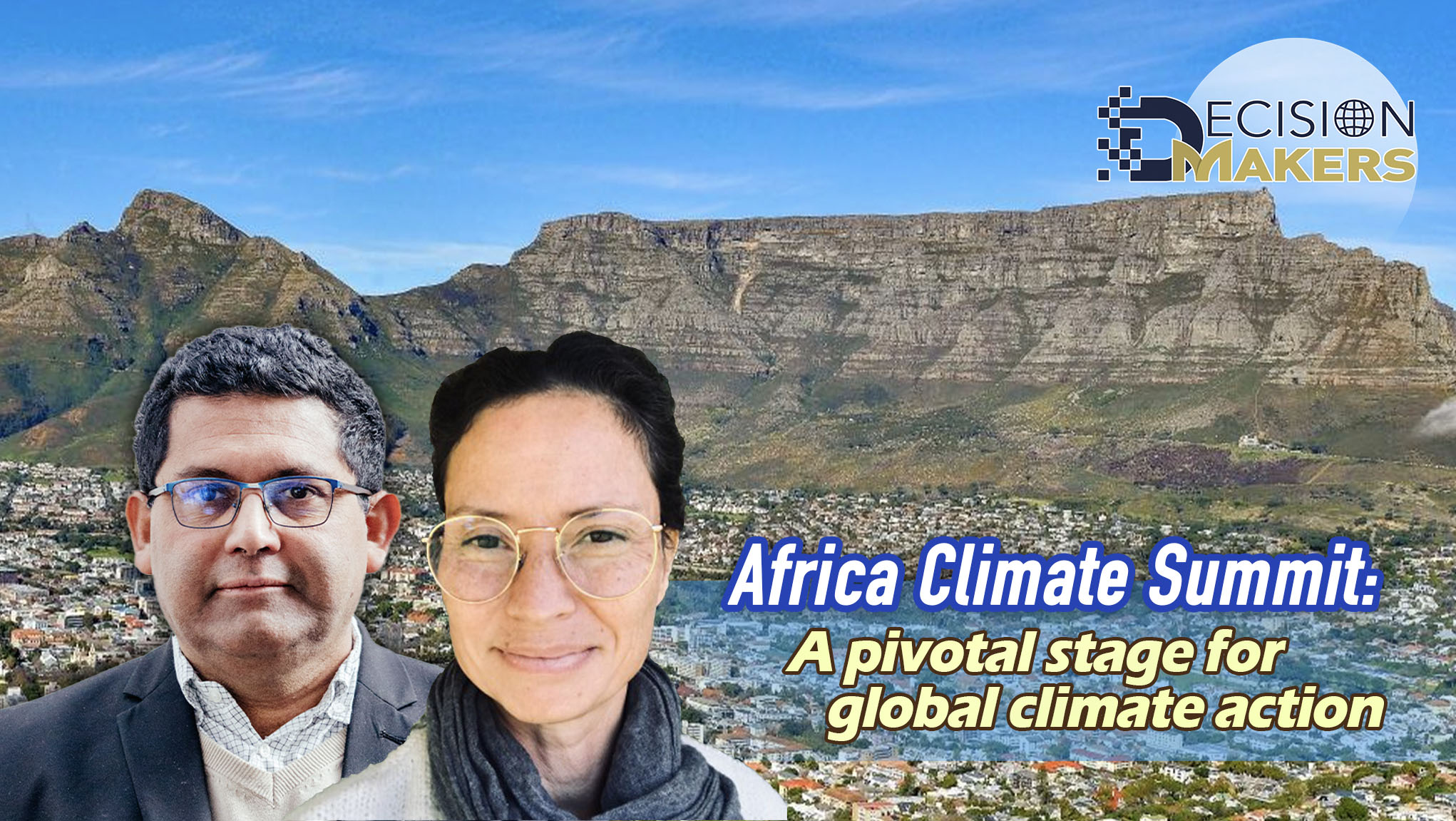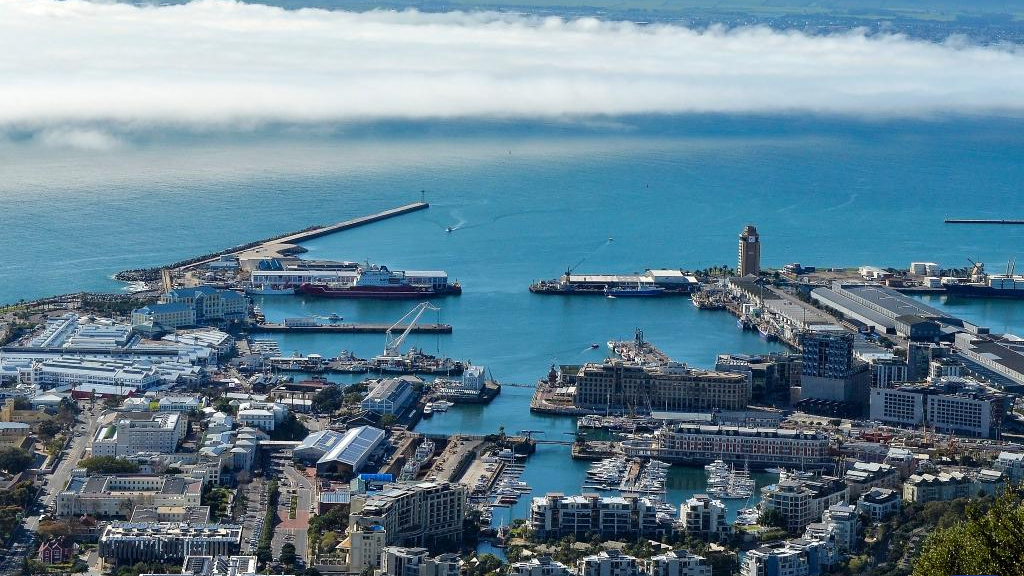
Editor's note: Decision Makers is a global platform for decision makers to share their insights on events shaping today's world. Saliem Fakir is the executive director of the Africa Climate Foundation and Marilia Bezerra is the chief programmes officer at the IKEA Foundation. The article reflects the authors' opinions and not necessarily the views of CGTN.
The battle against climate change demands action, as well as rhetoric. Climate leaders are flocking to the Africa Climate Summit and Africa Climate Week 2023 to nurture partnerships and launch new projects and ideas. As representatives of the Africa Climate Foundation and the IKEA Foundation, we want to challenge our fellow climate leaders – are we really making the transition from dialogue to concrete results?
We know the concerns that many of these forums end up as echo chambers. Information circulates from power room to power room with a large part of the globe excluded from the conversations, negotiations and opportunities.
The global climate crisis knows no borders. It is a complex challenge that requires the collective will and efforts of communities, governments and institutions worldwide. How might we really work together to get out of the catastrophic quagmire we find ourselves in?
First, we need to stop defining the climate crisis through the lens of human-made boundaries. No real transformation of our global economic and social systems will happen with only some of us. If we are to commit to the Paris Agreement and stay within our planetary boundaries, it has to include all of us.
Second, for the transformation to succeed, climate solutions must go hand in hand with economic change. They must be seen as part of a virtuous cycle – not a burden or cost to economies and households but a way to create economic growth, and develop government, business and household fiscal resilience.
And finally, to honor to the Paris Agreement and stay within our planetary boundaries, our collective transformation has to have the African continent at its heart. By 2050, Africa will have the youngest population in the world, and will be home to 19 percent of the world's people. It is currently experiencing the quickest urbanization rate globally and its states are fast-becoming geopolitically strategic and complex.
For instance, during the build-up to COP 27, four groups of business associations and networks collaborated between South Africa, Kenya, Egypt and Nigeria to talk about climate and the economy. This helped shift the narrative about Africa in the media towards opportunity and possibilities on the continent rather than the ongoing negative commentary.

The city view of Cape Town, South Africa, July 17, 2023. /Xinhua
The city view of Cape Town, South Africa, July 17, 2023. /Xinhua
Africa showing the way
As Africa articulates its vision and architecture for climate action, the global community has much to learn from it. The opportunities to leapfrog and to employ solutions in more effective ways than, say, Europe and U.S. have been willing or able to, is enormous.
Some African countries are already leading the way on both utility scale models of renewables and pioneering endeavours on decentralized models. For instance, in South Africa, reforms for embedded generation have seen in the last year close to 5,000 megawatts of solar rooftop photovoltaics adopted by households and firms. While there is no doubt that a lot more work has to be done to bridge the divide of access to clean energy between rich and poor. The right reforms and sources of cheap finance can start paving the way towards energy security.
Economic resilience leads to climate resilience
Africa's young population offers the opportunity to fast track African globalization through its increasing demand for digital access. Digital access can in turn spur the energy access revolution. The combination of energy and digital access will transform urban economies, with greater entrepreneurial activity leading to improved intra-regional trade, networks and the globalization of both entrepreneurship and the African labor force.
Higher income through more entrepreneurial activity and diversity of economic activity, with fairer wages, translates to more taxes for the government and more sustainable income for rural economies. That sustainable income also raises the potential for better forms of agricultural practices such as regenerative agriculture.
The role of climate philanthropies
Climate philanthropies can play a vital role. But they need to prioritize listening to the lived experience of those closest to the issues at hand. Ultimately, pragmatic, real economy solutions are key to protecting critical sectors and households from the economic ravages of climate change and extreme weather.
Transformative adaptation and resilience measures need to give primacy to sectors that are important for jobs, diverse community well-being and livelihoods. At the same time, they should consider reducing climate migration and promoting enhanced future investment prospects and income from sectors such as regenerative agriculture, eco-tourism and sustainable agroforestry.
The Africa Climate Summit must lead to concrete actions, and philanthropy needs to play a catalytic role – both on the continent and globally. At present, only 2 to 3 percent of philanthropic capital is invested in climate, which means philanthropies everywhere must raise their game. Interconnectedness is the organizing principle of life on our planet and our ecosystem. We would be wise to recognize this and reorganize ourselves as parts of a greater whole as opposed to individuals.
Without the full power of the African continent, our collective journey towards a livable planet will not be possible.
(If you want to contribute and have specific expertise, please contact us at opinions@cgtn.com. Follow @thouse_opinions on Twitter to discover the latest commentaries in the CGTN Opinion Section.)